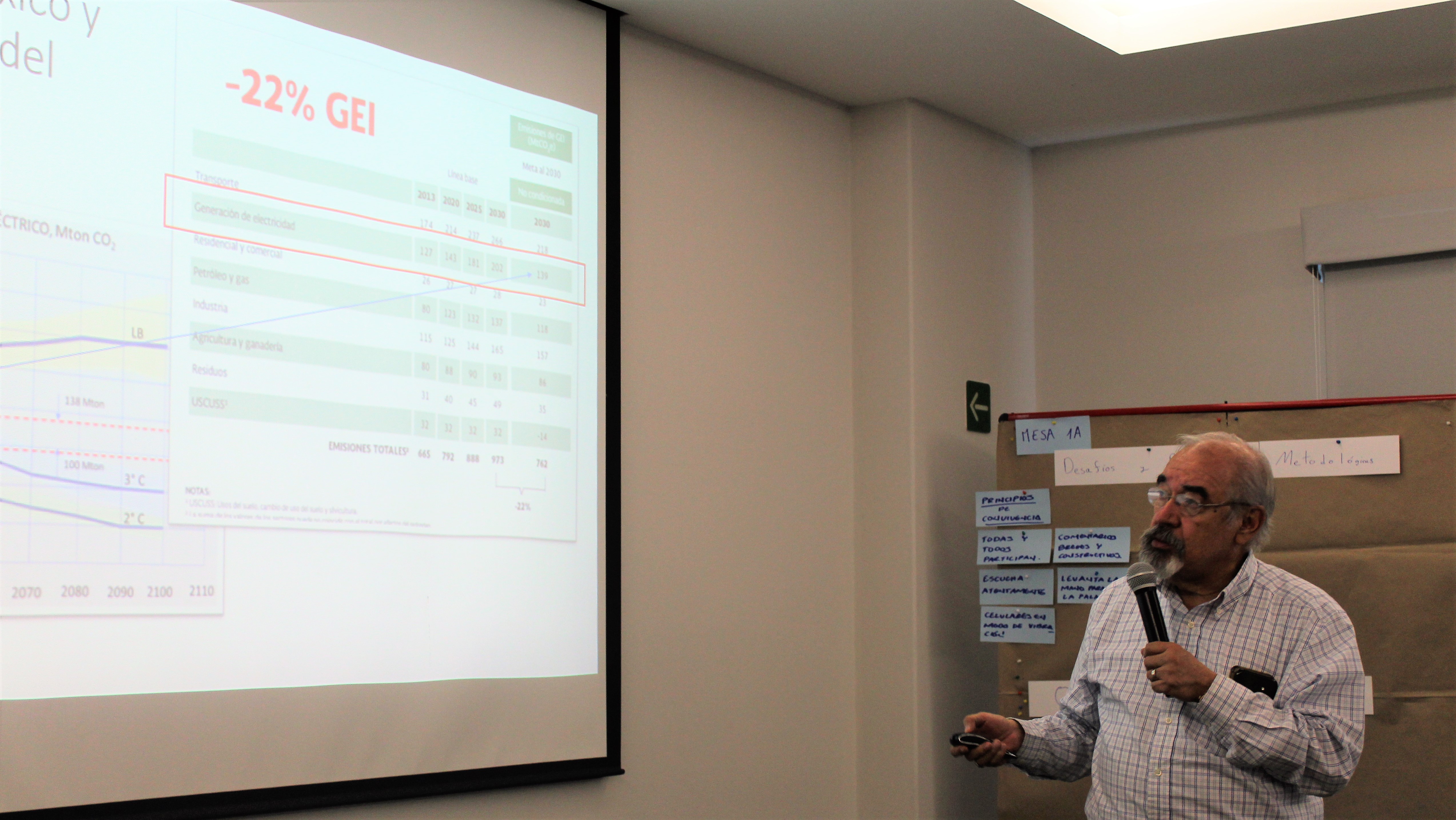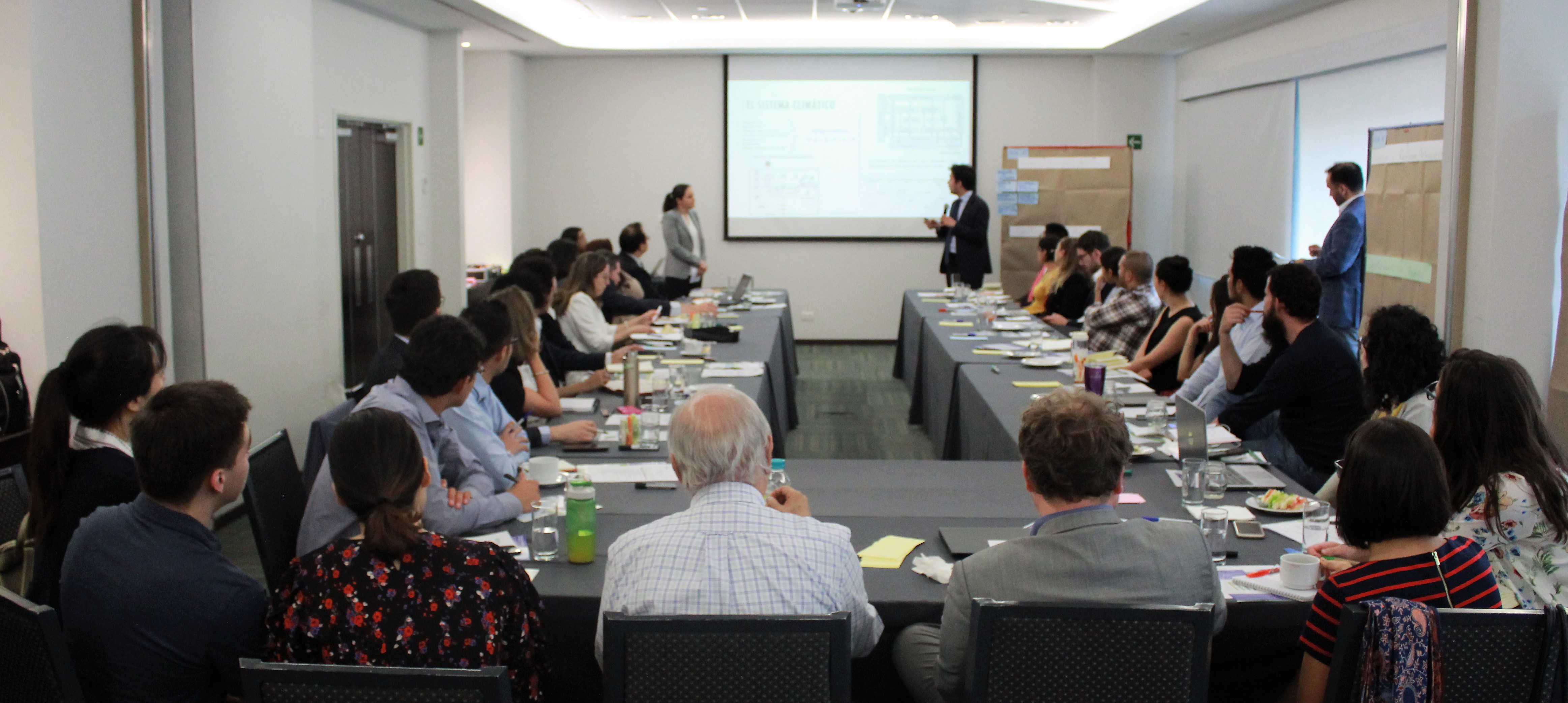As signatory countries of the Paris Agreement are in the process of revising their Nationally Determined Contributions (NDC) by 2020, climate experts and civil society organizations are calling for countries to adopt more ambitious mitigation targets. How can countries raise their climate ambition while ensuring that national commitments enshrined in the NDC revisions are consistent with the goals of the Paris Agreement? The concept of “carbon budget”, gaining prominence in the global climate agenda, might present some answers to this challenge.
A carbon budget is a determined quantity of GHG emissions which can be emitted globally to ensure that the increase in average Earth’s temperature is maintained within a certain range. The global carbon budget can be distributed across countries and sectors and helps define more ambitious mitigation targets compatible with global objectives.

The IKI project “Enhancing the Coherence of Climate and Energy Policies in Mexico” (CONECC), recently supported the NGO Mexican Climate Initiative (ICM) in estimating a carbon budget for Mexico and its power sector. CONECC aims to build bridges between energy and climate change policy to strengthen the sectorial contribution to the NDC. ICM methodology resulted in a Mexican carbon budget of 22.2 GtCO2e between 2019 and 2100, suggesting that if Mexico keeps emitting at the current pace, it would use the entirety of its carbon budget by 2040. Scaling down this value based on historical sectorial emissions, the study calculated a carbon budget of 1.31 GtCO2e for the electricity sector by 2030, equivalent to a 2030 sectorial emissions limit of 101.03 MtCO2e, a significantly more ambitious target than the 139 MtCO2e stated in the NDC.

To discuss these results and collect feedback from civil society actors, ICM and CONECC organized a workshop in Mexico City on the 16th of May. After a series of presentations on the results of the study, the discussion revolved around the following issues:
- Country allocation: should the carbon budget be divided based on each country’s historical emissions, or is there a better way to account for issues of social fairness and burden sharing?
- Sectorial distribution: similarly, should sectorial budgets be allocated based on each sector’s historical emissions, or rather consider the significant differences between sectors’ mitigation potential?
- Implementation: how to promote the concept of carbon budget to Mexican decision makers and integrate it into the revision of the NDC and the existing regulatory framework? building technical capacities within the sector, changing the perception of an economic development reliant on fossil fuels, and promoting the “co-benefits” arising from a carbon budget methodology, were all identified as key success factors.

Next steps will include refining the methodology, conducting a cost-effectiveness analysis of a variety of measures, and formulating recommendations for carbon budgets implementation. This will involve evaluating a budget for various other sectors of the economy and defining cost-effective mitigation scenarios compatible with the proposed targets. CONECC will continue supporting ICM in the effort of promoting the concept of carbon budget with a focus on the power sector, providing policy makers with convincing arguments for an increasingly ambitious climate policy.

Contact: Jonas Russbild, jonas.russbild@giz.de
